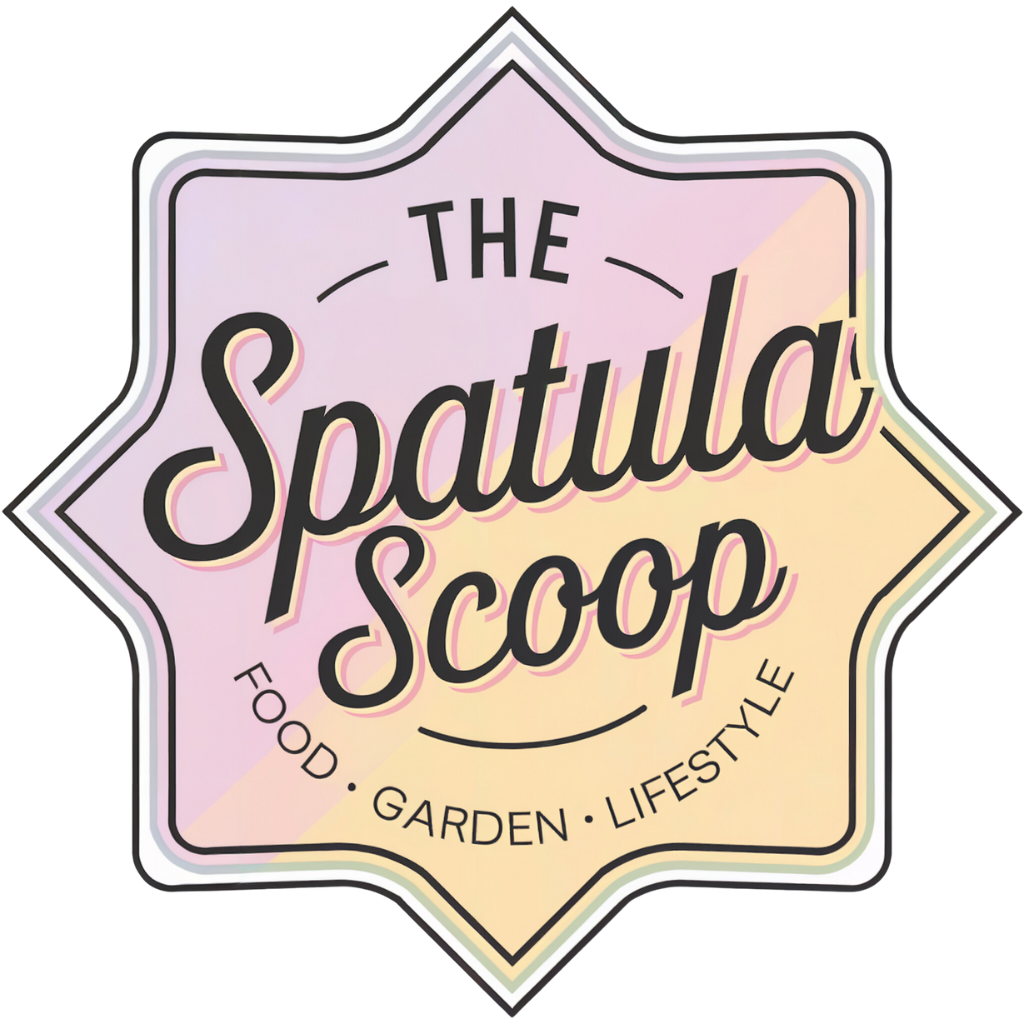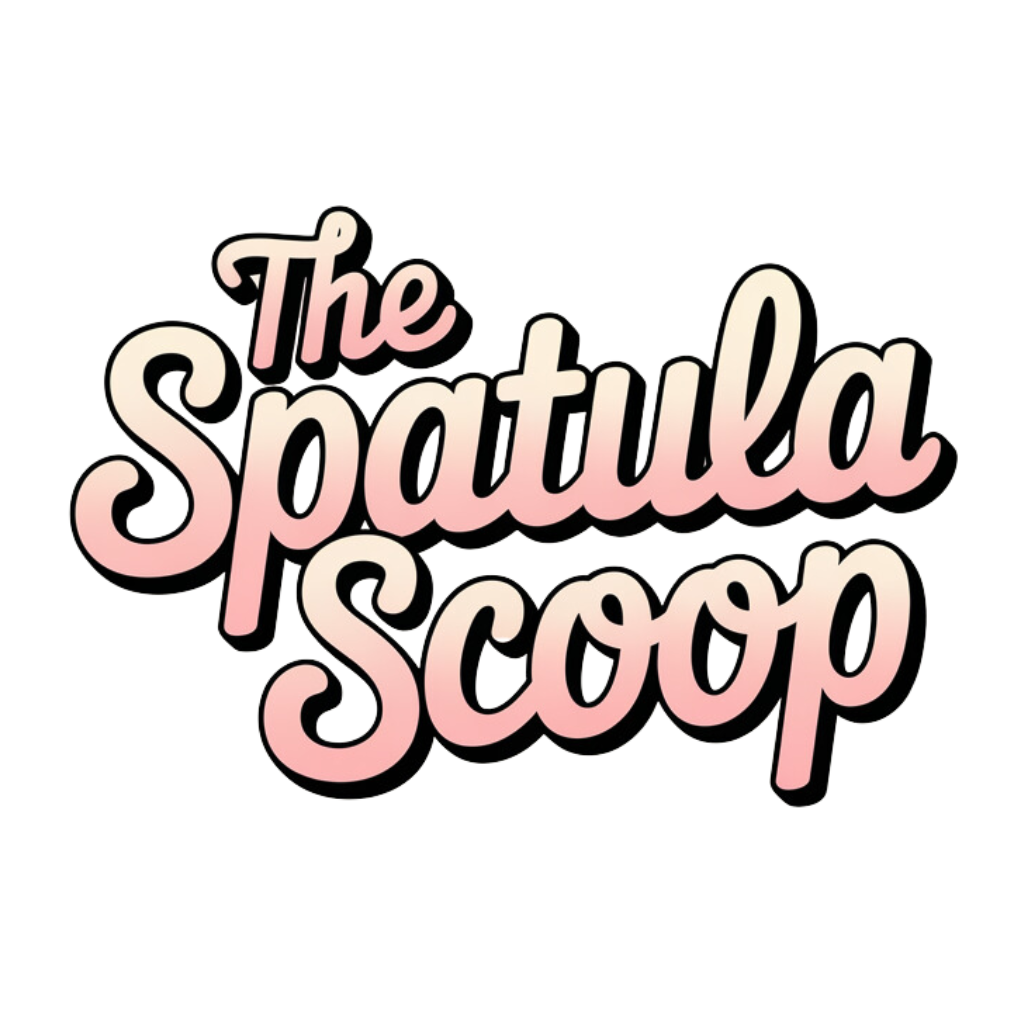Is Gelatin Safe for Birds to Eat
Gelatin's safety for birds is a complex issue. While it can provide protein and amino acids, it's not a natural part of most birds' diets. Birds have unique digestive systems that may not process gelatin efficiently. Potential risks include choking hazards, digestive upset, and nutritional imbalances. Veterinary opinions on gelatin for birds are mixed, with many experts recommending bird-safe alternatives. If you're considering offering gelatin to your feathered friend, consult an avian veterinarian first. They can provide tailored advice based on your bird's species and health needs. Understanding the full scope of gelatin's effects on avian health requires a deeper exploration of its composition and birds' nutritional requirements.
This post may contain affiliate links. If you make a purchase through these links, I may earn a commission at no additional cost to you. Additionally, portions of this post may be generated using artificial intelligence (AI) technology. While we strive for accuracy, please be aware that AI-generated content may not always be perfect and should be fact-checked when necessary.
The Spatula Scoops
- Gelatin's safety for birds is debated among veterinary experts due to its animal origin and birds' digestive systems.
- Birds can consume small amounts of plain gelatin as an occasional treat, but it offers limited nutritional benefits.
- Flavored or sweetened gelatin should be avoided as it may contain harmful artificial ingredients for birds.
- Gelatin can pose choking hazards, especially for smaller birds, if not prepared and served properly.
- Safer alternatives like agar-agar or pectin can provide similar textures without the potential risks of animal-derived gelatin.
What Is Gelatin?
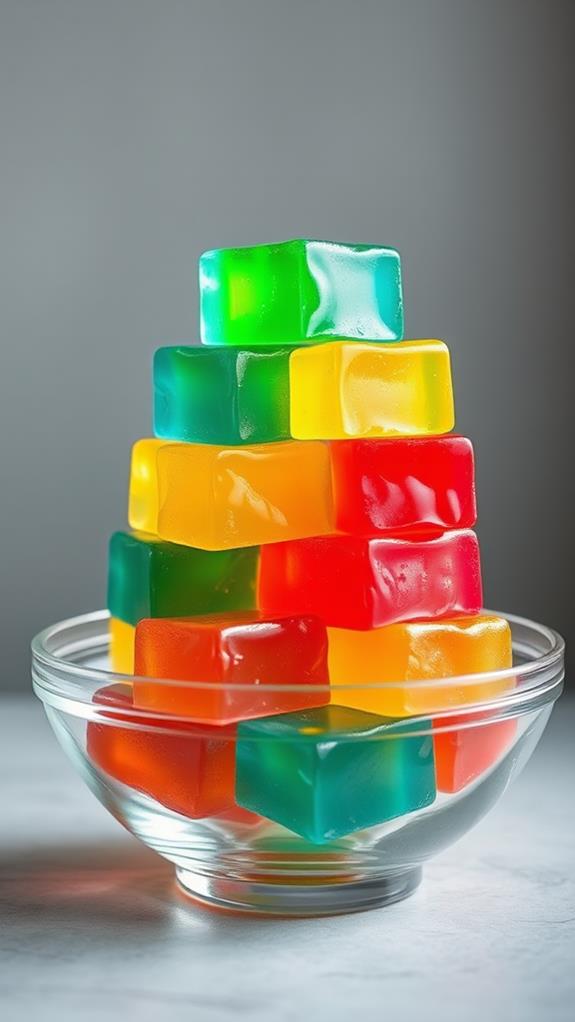
Gelatin is commonly used in various food products and is often misunderstood. It's a protein derived from collagen, which is found in animal bones, skin, and connective tissues. You'll typically encounter gelatin in foods like gummy candies, marshmallows, and some desserts. It's what gives these items their characteristic texture and consistency. Gelatin's versatility extends beyond food, as it's also used in meal prep storage solutions due to its ability to withstand freezing and thawing.
The process of making gelatin involves treating these animal parts with acid or alkaline solutions, followed by heating. This breaks down the collagen into smaller molecules, which can then be extracted and dried into a powder or formed into sheets. When you add water to gelatin, it swells and dissolves, creating a gel-like substance.
It's important to note that gelatin isn't vegetarian or vegan-friendly due to its animal origins. However, there are plant-based alternatives available, such as agar-agar or carrageenan. These substitutes can provide similar gelling properties without using animal products.
Understanding the nature of gelatin is essential when considering its safety for birds, as their dietary needs and digestive systems differ markedly from humans. This knowledge forms the foundation for examining whether gelatin is appropriate for avian consumption.
Nutritional Composition of Gelatin
Three key components make up the nutritional profile of gelatin: protein, water, and trace minerals. Gelatin is primarily composed of protein, specifically a type called collagen. This protein is incomplete, meaning it doesn't contain all the essential amino acids your body needs. However, it's rich in glycine, proline, and hydroxyproline, which are important for connective tissue health. Like corn-derived sweeteners, gelatin is also low in nutritional value but can serve specific culinary purposes.
Water content in gelatin can vary, but it's typically low in commercially available powdered forms. You'll find small amounts of minerals like calcium, sodium, and phosphorus in gelatin, though these aren't significant sources of nutrition.
It's worth noting that gelatin is calorie-sparse, containing about 23 calories per tablespoon. It's also carbohydrate-free and fat-free, making it a popular choice for those on low-carb or ketogenic diets. The glycemic index of gelatin is zero, meaning it won't spike blood sugar levels.
When considering gelatin for birds, remember that while it provides some protein, it shouldn't be a primary food source. Birds require a balanced diet with a variety of nutrients, including complete proteins, which gelatin doesn't offer.
Bird Digestive Systems
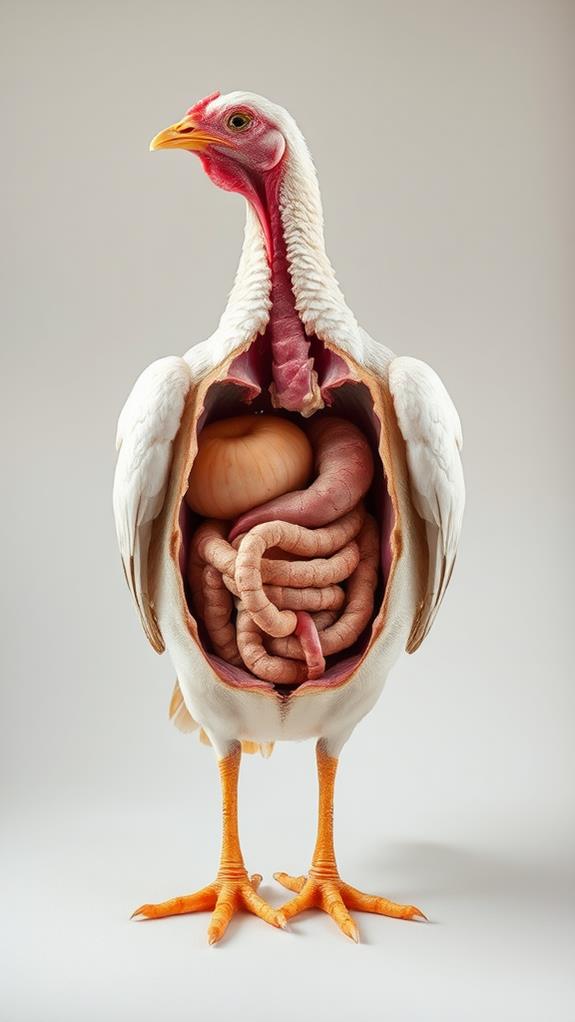
To understand how gelatin might affect birds, we need to examine their unique digestive systems. Birds have a streamlined digestive tract that's adapted for flight, allowing them to process food quickly and efficiently. Unlike mammals, they don't have teeth for chewing. Instead, they use their beaks to break down food before swallowing. This efficient system is particularly evident in Iceland's mosquito-free environment, where birds can focus on their natural diet without the interference of these insects.
Once food enters a bird's body, it travels to the crop, a storage pouch in the esophagus. From there, it moves to the proventriculus, or glandular stomach, where digestive enzymes begin breaking down the food. Next, the gizzard, a muscular organ containing small stones or grit, grinds the food into smaller particles.
The small intestine absorbs nutrients, while the large intestine and ceca (in some species) further process waste. Birds have a shorter digestive tract compared to mammals, which means food passes through their system more rapidly. This fast digestion helps them maintain their high metabolic rate and energy needs for flight. Understanding these unique features of avian digestion is pivotal when considering the safety of different foods, including gelatin, for birds.
Potential Benefits for Birds
Despite its controversial nature, gelatin may offer some potential benefits for birds when consumed in moderation. You'll find that gelatin can provide a source of protein and amino acids, which are essential for your bird's growth, feather development, and overall health. It's particularly rich in glycine and proline, amino acids that play pivotal roles in collagen formation and tissue repair.
You might notice improved joint health in your feathered friends, as gelatin contains components that can support cartilage and connective tissue. This could be especially beneficial for older birds or those with mobility issues. Additionally, gelatin's protein content may aid in muscle maintenance and recovery, which is imperative for active birds.
In terms of digestive health, gelatin's properties could potentially soothe your bird's gut lining and improve nutrient absorption. It might also help with hydration, as gelatin can retain water and create a gel-like consistency when mixed with liquids. However, it's indispensable to remember that these potential benefits should be weighed against any risks, and you should always consult an avian veterinarian before introducing gelatin to your bird's diet.
Risks and Concerns
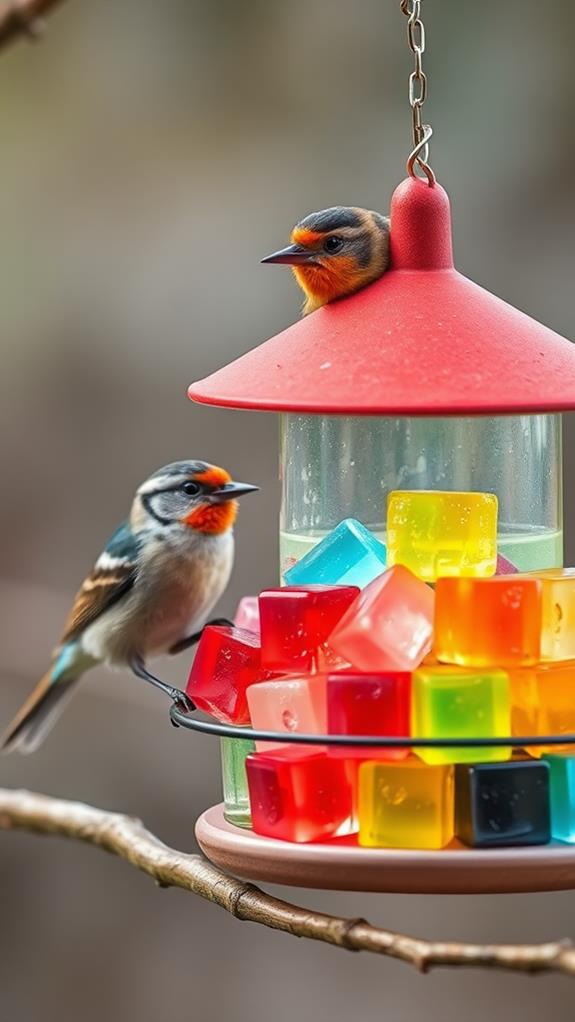
While gelatin can offer some benefits, it's pivotal to be aware of the potential risks and concerns associated with feeding it to birds. You should consider the following factors before introducing gelatin into your bird's diet:
| Concern | Potential Risk |
|---|---|
| Artificial Ingredients | May contain harmful additives or preservatives |
| Choking Hazard | Large pieces can cause obstruction |
| Nutritional Imbalance | Excessive protein intake |
| Allergic Reactions | Some birds may be sensitive to gelatin |
Gelatin often contains artificial flavors, colors, and sweeteners that aren't suitable for birds. These additives can lead to digestive issues or long-term health problems. You'll want to guarantee any gelatin you offer is pure and free from harmful ingredients.
Another concern is the texture of gelatin. If not properly prepared, it can pose a choking hazard, especially for smaller birds. You'll need to break it down into manageable pieces or mix it with other foods to diminish this risk.
Overfeeding gelatin can also lead to nutritional imbalances. While it's a good source of protein, too much can strain your bird's digestive system and kidneys. It's paramount to offer gelatin in moderation as part of a balanced diet.
Species-Specific Considerations
When considering gelatin for birds, you'll find that different species have varying dietary needs and tolerances. Parrots, for instance, can generally consume small amounts of plain, unflavored gelatin without issues, as it's a source of protein and collagen. However, you should exercise caution with waterfowl like ducks, as their digestive systems may not process gelatin as effectively, potentially leading to complications.
Safe Gelatin for Parrots
Parrots, with their diverse dietary needs, can safely consume gelatin in moderation. When offering gelatin to your feathered friend, it's vital to choose the right type and prepare it properly. Opt for plain, unflavored gelatin without any artificial sweeteners or additives. These can be harmful to your parrot's digestive system.
To guarantee your parrot's safety when introducing gelatin, follow these guidelines:
- Start with a small amount to test for any adverse reactions
- Mix the gelatin with fresh fruits or vegetables for added nutrition
- Avoid flavored or sweetened varieties, as they may contain xylitol or other harmful ingredients
- Prepare the gelatin using clean, filtered water to minimize contaminants
Remember that gelatin should only be an occasional treat, not a staple in your parrot's diet. It's rich in protein but lacks other essential nutrients. Always consult with an avian veterinarian before making significant changes to your parrot's diet. They can provide tailored advice based on your bird's specific needs, age, and health condition. By following these precautions, you'll make certain that gelatin remains a safe and enjoyable treat for your parrot.
Gelatin Concerns for Ducks
Unlike parrots, ducks have different digestive systems and dietary needs, making gelatin a less suitable treat for them. Ducks are primarily herbivores, with their digestive tracts adapted for processing plant-based foods. Introducing gelatin, an animal-derived protein, may cause digestive upset or nutritional imbalances in these waterfowl.
When considering gelatin for ducks, you'll want to be cautious. Their bills and tongues aren't designed to manipulate sticky substances effectively, which could lead to choking hazards. Additionally, ducks lack the enzymes necessary to break down certain animal proteins efficiently. This can result in malabsorption and potential blockages in their digestive tract.
Instead of gelatin, focus on providing ducks with their natural diet. This includes aquatic plants, seeds, and small invertebrates. If you're looking to offer treats, consider options like chopped leafy greens, peas, or corn. These alternatives are more aligned with a duck's nutritional requirements and are easier for them to consume safely. Remember, while gelatin might seem like an interesting treat, it's best to prioritize foods that support a duck's overall health and well-being.
Veterinary Opinions on Gelatin
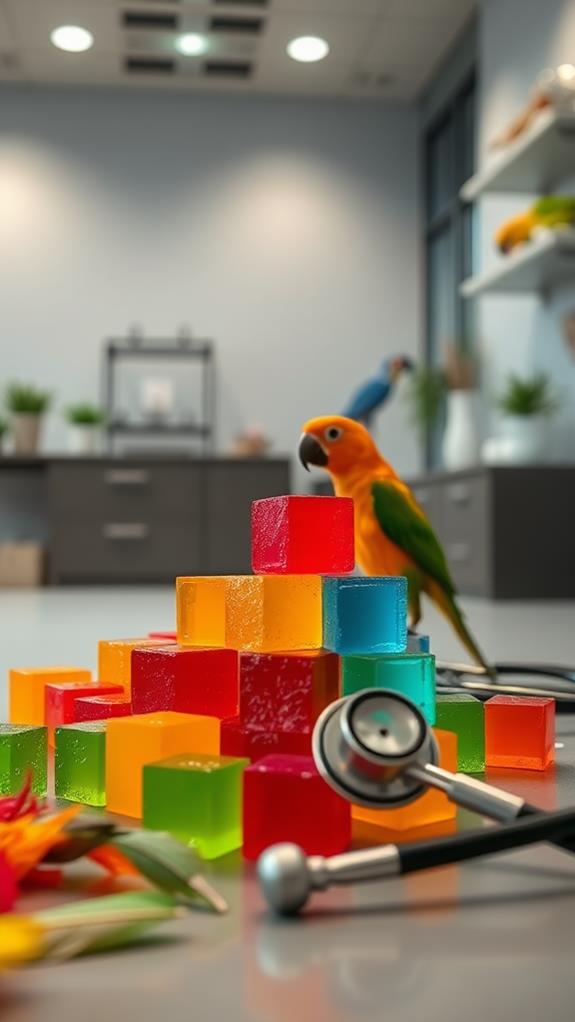
According to veterinary experts, gelatin's safety for bird consumption remains a topic of debate. While some vets argue that small amounts of gelatin are harmless, others caution against its use in avian diets. The controversy stems from gelatin's animal-derived nature and potential digestive implications for birds.
When considering gelatin for your feathered friends, keep these points in mind:
- Source: Gelatin comes from animal collagen, which isn't a natural part of most birds' diets.
- Digestibility: Birds' digestive systems aren't optimized for processing mammalian proteins.
- Nutritional value: Gelatin offers limited nutritional benefits for birds.
- Alternatives: Plenty of bird-safe, protein-rich foods exist that are more suitable.
Some avian specialists suggest that occasional, small amounts of gelatin might not harm healthy adult birds. However, they stress that it shouldn't be a regular part of their diet. If you're considering incorporating gelatin into your bird's food, it's vital to consult with an avian veterinarian first. They can provide tailored advice based on your bird's species, age, and health status, ensuring you're making the best dietary choices for your pet.
Alternatives to Gelatin
Given the potential risks associated with gelatin, it's wise to explore safer alternatives for your feathered companion. You'll find numerous options that can provide similar nutritional benefits without the potential hazards. Consider incorporating these bird-friendly alternatives into your pet's diet:
| Alternative | Benefits | Usage |
|---|---|---|
| Agar-agar | Plant-based, high fiber | Jelly treats |
| Pectin | Fruit-derived, low calorie | Homemade bird food |
| Xanthan gum | Gluten-free, versatile | Binding agent |
These alternatives offer unique advantages for your bird's health and well-being. Agar-agar, derived from seaweed, is rich in iodine and calcium. It's an excellent option for creating jelly-like treats that birds enjoy. Pectin, found naturally in fruits, can be used to make homemade bird food with a gel-like consistency. It's low in calories and high in soluble fiber, supporting digestive health. Xanthan gum, a polysaccharide produced by bacterial fermentation, serves as an effective binding agent in bird food recipes. It's safe for birds and helps maintain the texture of their food.
When introducing new ingredients to your bird's diet, always consult with an avian veterinarian to corroborate they're appropriate for your specific pet.
Proper Preparation and Serving
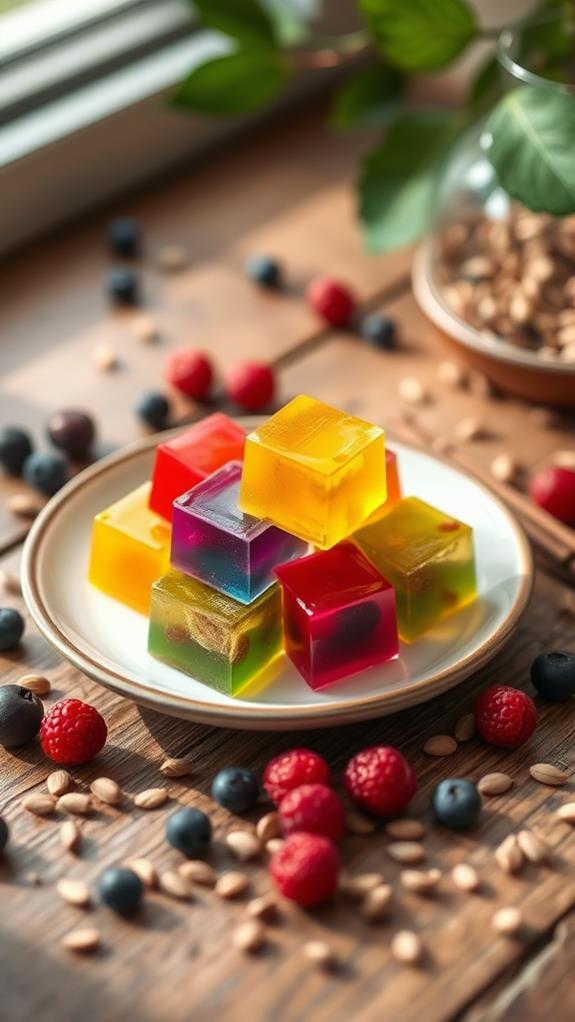
Proper preparation and serving of bird-safe alternatives is paramount for your feathered friend's health and enjoyment. When offering gelatin substitutes or other treats, guarantee they're in manageable sizes and textures for your bird's beak and digestive system. Always wash fruits and vegetables thoroughly to remove pesticides or contaminants.
To serve bird-safe alternatives safely:
- Cut food into appropriately sized pieces for your bird's species
- Remove any seeds, pits, or cores that could be harmful
- Offer treats in a clean, shallow dish to prevent contamination
- Monitor your bird's intake to maintain a balanced diet
Introduce new foods gradually to avoid digestive upset. You'll want to observe your bird's reaction to confirm they tolerate the new item well. Remember, treats should only make up a small portion of your bird's diet, typically no more than 10% of their daily caloric intake.
When preparing homemade alternatives, use bird-safe ingredients and avoid additives or preservatives. If you're unsure about a particular food's safety, consult your avian veterinarian. They can provide guidance on specific dietary needs and restrictions for your bird's species and individual health requirements.
Monitoring Your Bird's Response
Vigilance is key when introducing new foods to your bird's diet. When offering gelatin to your feathered friend, you'll need to closely monitor their reaction. Watch for any changes in behavior, appetite, or droppings. These could be signs of digestive discomfort or an allergic response.
Keep an eye on your bird's energy levels and overall demeanor. If they seem lethargic or unusually quiet after consuming gelatin, it might not agree with them. Pay attention to their droppings, as changes in consistency or color can indicate digestive issues. If you notice any abnormalities, discontinue gelatin immediately and consult your avian veterinarian.
It's essential to introduce gelatin gradually. Start with a small amount and observe your bird's reaction over 24-48 hours. If there are no adverse effects, you can slowly increase the quantity. Remember, every bird is unique, and what works for one might not suit another. Always err on the side of caution and be prepared to adjust your bird's diet accordingly. By carefully monitoring your bird's response to gelatin, you'll guarantee their safety and well-being while potentially adding a new treat to their menu.
Frequently Asked Questions
Can Birds Develop an Addiction to Gelatin?
You don't need to worry about birds developing an addiction to gelatin. While birds may enjoy eating gelatin, it's not addictive for them. Their bodies process it like any other food. However, it's important to remember that gelatin isn't a natural part of a bird's diet. If you're feeding birds, it's best to stick to foods that are more suitable for their nutritional needs, such as seeds, fruits, and insects. Always prioritize a balanced diet for your feathered friends.
Does Gelatin Affect a Bird's Feather Color or Texture?
You might think gelatin could turn your bird into a rainbow-feathered wonder, but that's not the case. Gelatin doesn't directly affect a bird's feather color or texture. A bird's diet can influence its plumage, but gelatin isn't a significant factor. Feather color is primarily determined by genetics and overall nutrition. Texture is more about the bird's health, grooming habits, and environmental factors. If you're concerned about your bird's appearance, focus on a balanced diet and proper care instead.
How Does Gelatin Compare to Other Protein Sources for Birds?
When you're considering protein sources for birds, gelatin doesn't stack up well against alternatives. It's less complete and digestible than animal-based proteins like insects or seeds. Gelatin lacks essential amino acids that birds need for proper growth and feather development. You'll find better options in commercial bird feeds, which are formulated to meet avian nutritional requirements. While gelatin isn't harmful in small amounts, it shouldn't be a primary protein source for your feathered friends.
Can Gelatin Be Used as a Binder in Homemade Bird Treats?
You might wonder if gelatin can be a useful binder in homemade bird treats. Well, it can be! Gelatin's protein-rich structure makes it an effective binding agent for various ingredients. When used in moderation, it can help hold seeds, fruits, and other bird-friendly components together. However, it's vital to guarantee the gelatin doesn't make up a large portion of the treat. Always prioritize natural, bird-appropriate ingredients and consult with an avian veterinarian before introducing new foods to your feathered friends' diet.
Are There Any Cultural or Religious Considerations Regarding Gelatin in Bird Diets?
When considering gelatin in bird diets, you'll find cultural and religious factors at play. For instance, some vegetarians and vegans avoid gelatin due to its animal origin. In Judaism and Islam, gelatin's permissibility depends on its source and processing methods. Halal and kosher certifications are critical for adherents of these faiths. Some Hindus may avoid gelatin if it's derived from cows. It is necessary to respect these diverse perspectives when formulating bird diets, especially in multicultural settings or when catering to specific communities.
Conclusion
While gelatin can provide some nutritional benefits for birds, you should approach it cautiously. It's not toxic, but some birds may have difficulty digesting it. You'll want to consult your avian veterinarian before introducing gelatin to your bird's diet. Although some might argue it's unnecessary, gelatin can be a useful supplement when properly prepared and served in moderation. Always monitor your bird's response and consider safer alternatives if you're unsure. Ultimately, a balanced, species-appropriate diet remains the best choice for your feathered friend's health.
